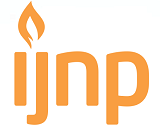The Correlation between The Knowledge Level of Diabetes Management toward The Preprandial Glucose Levels
DOI:
https://doi.org/10.18196/ijnp.41104Keywords:
Diabetes mellitus, Level of knowledge, Management, Preprandial blood glucoseAbstract
Background: Knowledge about diabetes mellitus affects the lifestyle of patients who suffer from diabetes mellitus. Knowledge is one of the essential factors that determine health management for patients.
Objective: This study aimed to determine the relationship between the knowledge level of diabetes mellitus (DM) management and preprandial glucose levels.
Method: This study uses a quantitative cross-sectional method in which the correlation between the knowledge level and the preprandial glucose levels was calculated. Sixty-eight respondents were selected using purposive sampling. The knowledge level of DM management was measured using a questionnaire which consists of 28 questions. The value of the preprandial glucose level was measured using a test tool (easytouch®). The data were analyzed using Pearson product-moment correlation test. The study was conducted from January to February 2019.
Result: The result shows that respondents have a high level of knowledge of diabetes management, in which the score is 20.37 on average. The respondents have an average preprandial glucose level of 139.72 dl/mg. The Pearson product-moment correlation test shows a significant correlation between the knowledge of DM management and the preprandial glucose level with the coefficient correlation at -0.422, and p<0.001 (ρ<0.05).
Conclusion: There is a correlation between the knowledge level of diabetes management toward preprandial glucose levels.References
Al Slail, F. Y., Afridi, H. U., Fadl, S. M., & Kheir, O. O. (2018). Levels of health awareness in diabetic patients during Ramadan 2015: Focus group discussion in Riyadh, Saudi Arabia. Journal of Epidemiology and Global Health, 7(Suppl. 1), S49-S54. https://doi.org/10.1016/j.jegh.2018.04.004
Albuquerque, C., Correia, C., & Ferreira, M. (2015). Adherence to the therapeutic regime in person with type 2 diabetes. Procedia-Social and Behavioral Sciences, 171, 350-358. https://doi.org/10.1016/j.sbspro.2015.01.132
Alfiani, N., Yulifah, R., & Sutriningsih, A. (2017). Hubungan pengetahuan diabetes melitus dengan gaya hidup pasien diabetes melitus di Rumah sakit tingkat II dr. Soepraoen Malang. Nursing News, 2(2), 390-402.
Cagnacci, A., Zanin, R., Cannoletta, M., Generali, M., Caretto, S., & Volpe, A. (2007). Menopause, estrogens, progestins, or their combination on body weight and anthropometric measures. Fertility and sterility, 88(6), 1603-1608. https://doi.org/10.1016/j.fertnstert.2007.01.039
Djuned, S., & Dieny, F. F. (2014). Pengaruh Diet Indeks Glikemik Tinggi dan Rendah Terhadap Kadar Glukosa Darah Atlet Lari. Journal of Nutrition College, 3(4), 565-572. https://doi.org/10.14710/jnc.v3i4.6851
Fahra, R. U., Widayati, N., & Sutawardana, J. H. (2017). Correlation Between the Role of Nurse as Educator and Self Care Behaviour in Patients with Type 2 Diabetes Mellitus at Internal Medicine Unit of Bina Sehat Hospital Jember. NurseLine Journal, 2(1), 61-72. https://doi.org/10.19184/nlj.v2i1.5197
Forouhi, N. G., & Wareham, N. J. (2010). Epidemiology of diabetes. Medicine, 38(11), 602-606. https://doi.org/10.1016/j.mpmed.2010.08.007
Haris, F., & Nugraheni, A. A. (2017). Level of Family Knowledge on Diabetes Mellitus Diet in Yogyakarta. Advanced Science Letters, 23(12), 12563-12567. https://doi.org/10.1166/asl.2017.10817
Hermanns, N., Ehrmann, D., Schipfer, M., Kröger, J., Haak, T., & Kulzer, B. (2019). The impact of a structured education and treatment programme (FLASH) for people with diabetes using a flash sensor-based glucose monitoring system: results of a randomized controlled trial. Diabetes Research and Clinical Practice, 150, 111-121. https://doi.org/10.1016/j.diabres.2019.03.003
Koye, D. N., Magliano, D. J., Nelson, R. G., & Pavkov, M. E. (2018). The global epidemiology of diabetes and kidney disease. Advances in chronic kidney disease, 25(2), 121-132. https://doi.org/10.1053/j.ackd.2017.10.011
Kwon, Y. J., Hong, K. W., Park, B. J., & Jung, D. H. (2019). Serotonin receptor 3B polymorphisms are associated with type 2 diabetes: The Korean Genome and Epidemiology Study. Diabetes research and clinical practice, 153, 76-85. https://doi.org/10.1016/j.diabres.2019.05.032
Lawton, J., & Rankin, D. (2010). How do structured education programmes work? An ethnographic investigation of the dose adjustment for normal eating (DAFNE) programme for type 1 diabetes patients in the UK. Social science & medicine, 71(3), 486-493. https://10.1016/j.socscimed.2010.04.030
Maharani, D. S., Herawati, V. D., & Anggraeni, T. (2014). Efektifitas Pendidikan Kesehatan Terhadap Peningkatan Pengetahuan Mendeteksi Tanda Dan Gejala Hiperglikemia Dan Hipoglikemia Pada Pasien Diabetes Mellitus. Jurnal Ilmu Keperawatan Indonesia (JIKI), 7(2), 79-90.
Ministry of Health RI. (2013). Riset Kesehatan Dasar: RISKESDAS 2013 [Press release]. Retrieved from https://pusdatin.kemkes.go.id/resources/download/general/Hasil%20Riskesdas%202013.pdf
Ministry of Health RI. (2018). Hari Diabetes Sedunia Tahun 2018. Retrieved from https://pusdatin.kemkes.go.id/article/view/19041500002/hari-diabetes-sedunia-2018.html
Notoatmodjo. (2007). Promosi Kesehatan dan Ilmu Perilaku. Jakarta: Rineka Cipta.
Perdana, A. A., Ichsan, B., & Rosyidah, D. U. (2013). Hubungan tingkat pengetahuan tentang penyakit DM dengan pengendalian kadar glukosa darah pada pasien DM Tipe II di RSU PKU Muhammadiyah Surakarta. Biomedika, 5(2), 17-21. https://doi.org/10.23917/biomedika.v5i2.265
Ramsar, U., Trisnantoro, L., & Putri, L. P. (2017). Implementasi Program Pengelolaan Penyakit Kronis (Prolanis) di Puskesmas Poasia Kota Kendari. Jurnal Kebijakan Kesehatan Indonesia: JKKI, 6(4), 200-203. https://doi.org/10.22146/jkki.v6i4.26899
Tsalissavrina, I., Tritisari, K. P., Handayani, D., Kusumastuty, I., Ariestiningsih, A. D., & Armetristi, F. (2018). Hubungan lama terdiagnosa diabetes dan kadar glukosa darah dengan fungsi kognitif penderita diabetes tipe 2 di Jawa Timur. AcTion: Aceh Nutrition Journal, 3(1), 28-33. http://dx.doi.org/10.30867/action.v3i1.96
WHO. (2018). Diabetes: Key facts. Retrieved from https://www.who.int/news-room/fact-sheets/detail/diabetes
Widyasari, N. (2017). Relationship of Respondent’s Characteristic with The Risk of Diabetes Mellitus and Dislipidemia at Tanah Kalikedinding. Jurnal Berkala Epidemiologi, 5(1), 130-141. http://dx.doi.org/10.20473/jbe.V5I12017.130-141
Downloads
Additional Files
- Kuesioner Tingkat Pengetahuan Penatalaksanaan DM
- Ethical Clearance
- Hubungan Tingkat Pengetahuan Penatalaksanaan Diabetes Mellitus (DM) Dengan Kadar Gula Darah Puasa
- 6724-21774-1-RV-Similarity check
- The correlation between the knowledge level of diabetes management toward the preprandial glucose levels
Published
Issue
Section
License
License
Articles published in the IJNP (Indonesian Journal of Nursing Practices) are licensed under a Attribution 4.0 International (CC BY 4.0) license. You are free to:
- Share — copy and redistribute the material in any medium or format.
- Adapt — remix, transform, and build upon the material for any purpose, even commercially.
This license is acceptable for Free Cultural Works. The licensor cannot revoke these freedoms as long as you follow the license terms. Under the following terms:
Attribution — You must give appropriate credit, provide a link to the license, and indicate if changes were made. You may do so in any reasonable manner, but not in any way that suggests the licensor endorses you or your use.
- No additional restrictions — You may not apply legal terms or technological measures that legally restrict others from doing anything the license permits.
Copyright
Authors who publish with IJNP (Indonesian Journal of Nursing Practices) agree to the following terms:
- Authors retain copyright and grant IJNP (Indonesian Journal of Nursing Practices) the right of first publication with the work simultaneously licensed under an Attribution 4.0 International (CC BY 4.0) that allows others to remix, adapt and build upon the work with an acknowledgment of the work's authorship and of the initial publication in IJNP (Indonesian Journal of Nursing Practices).
- Authors are permitted to copy and redistribute the journal's published version of the work (e.g., post it to an institutional repository or publish it in a book), with an acknowledgment of its initial publication in IJNP (Indonesian Journal of Nursing Practices).














